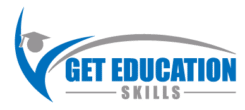
Education is a fundamental aspect of personal and professional development. It shapes our understanding, skills, and opportunities throughout life. This guide provides a thorough exploration of key elements related to education, including essential skills, examination strategies, career planning, and college preparation.
1. The Importance of Education
Education is a lifelong process that helps individuals acquire knowledge, develop skills, and cultivate values. It begins in early childhood and continues through higher education and beyond, influencing both personal growth and societal progress. Effective education fosters critical thinking, adaptability, and a broader perspective on the world.
2. Essential Education Skills
To thrive in educational settings and beyond, certain skills are crucial:
Critical Thinking: Evaluating information logically and making informed decisions.
Effective Communication: Clearly and persuasively expressing ideas in written and verbal forms.
Problem-Solving: Identifying issues and creating practical solutions.
Time Management: Organizing and prioritizing tasks to meet deadlines efficiently.
Digital Literacy: Utilizing technology effectively to support learning and productivity.
Mastering these skills enhances academic performance and prepares individuals for various professional and personal challenges.
3. Strategies for Exam Success
Examinations are an essential part of the educational process, designed to assess students’ knowledge and understanding. Common types of exams include:
Standardized Tests: Measure performance against established benchmarks.
Quizzes and Midterms: Evaluate progress and understanding throughout a course.
Final Exams: Comprehensive assessments at the end of a term or course.
Effective preparation involves creating a study plan, using practice exams, and developing test-taking strategies. Consistent study habits and managing stress are key to achieving optimal results.
4. Career Planning and Development
Career planning is vital for achieving long-term professional goals. It involves:
Self-Assessment: click here Identifying personal interests, strengths, and career objectives.
Exploring Career Options: Researching different career paths and understanding their requirements.
Skill Development: Acquiring relevant qualifications and experience.
Networking: Building professional relationships and seeking mentorship.
Career planning is a dynamic process that requires ongoing adjustment based on evolving interests and market trends.
5. Leveraging Online Career Resources
The digital landscape has transformed career exploration and development. Useful online resources include:
Job Portals: Websites where job openings are advertised and applications can be submitted.
Professional Networking Platforms: Sites like LinkedIn for connecting with industry professionals and exploring job opportunities.
Online Learning Platforms: Resources for acquiring new skills and certifications.
Utilizing these online tools can enhance job search efforts and career advancement.
6. Preparing for College
College is a significant milestone in higher education, offering specialized knowledge and personal growth opportunities. Key steps include:
Researching Colleges: Evaluating institutions based on academic programs, campus life, and location.
Application Process: Preparing and submitting applications, including essays and recommendations.
Financial Planning: Understanding tuition costs and exploring scholarships and financial aid options.
Thorough preparation for college can have a substantial impact on academic and career success.
7. Supporting Educators
Educators play a crucial role in the learning process. Effective teaching involves:
Lesson Planning: Designing engaging and informative lessons.
Classroom Management: Creating a supportive and productive learning environment.
Student Assessment: Evaluating student performance and providing constructive feedback.
Supporting teachers with resources and professional development is essential for maintaining a high-quality educational experience.
8. The Value of General Education
General education provides a broad knowledge base and essential skills. It includes:
Literacy and Numeracy: Fundamental skills in reading, writing, and mathematics.
Social Studies: Understanding of history, geography, and civic responsibilities.
Science and Technology: Knowledge of scientific principles and technological advancements.
A strong foundation in general education prepares individuals for a wide range of life and career opportunities.
Conclusion
Education is a multifaceted journey that extends beyond formal schooling. By focusing on essential skills, effective exam strategies, career planning, and utilizing online resources, individuals can enhance their educational experiences and achieve greater success. For more information and resources on these topics, visit Get Education Skills.